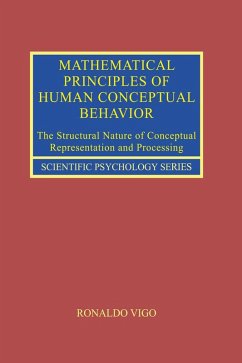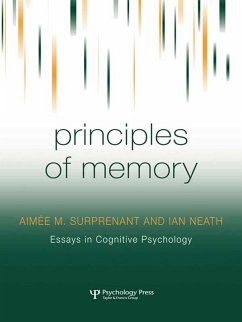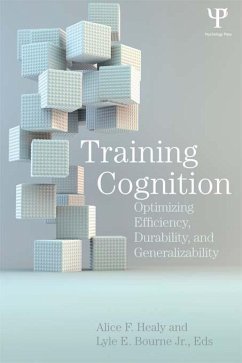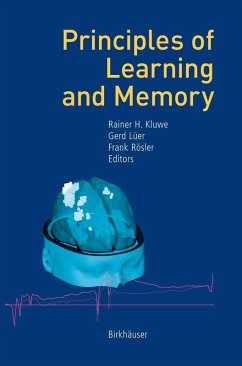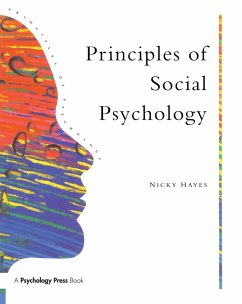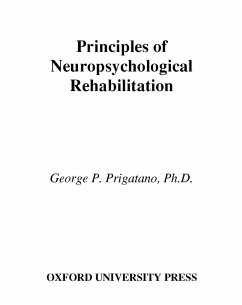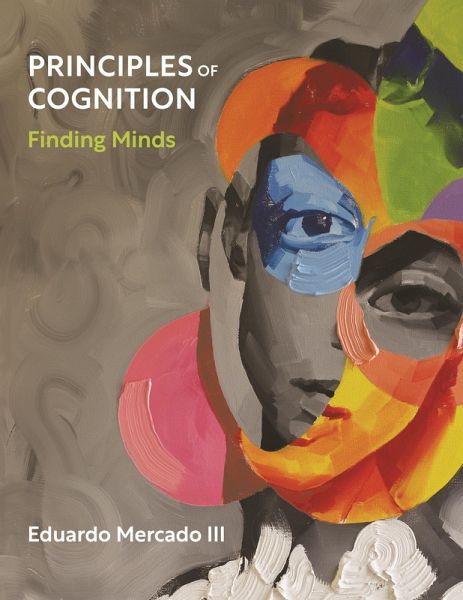
Principles of Cognition (eBook, PDF)
Finding Minds

PAYBACK Punkte
39 °P sammeln!
A comprehensive overview of what psychologists now know about the nature of cognitionPrinciples of Cognition provides students with an invaluable introduction to the modern science of cognition, blending invaluable insights from behavioral and neuroscientific studies of humans and other animals with unique examples, cutting-edge research summaries, and real-world applications. This accessible textbook builds on the legacy of psychologist William James by emphasizing not only the form cognition takes in laboratory research but also the functional dynamics of cognitive processes in everyday life...
A comprehensive overview of what psychologists now know about the nature of cognition
Principles of Cognition provides students with an invaluable introduction to the modern science of cognition, blending invaluable insights from behavioral and neuroscientific studies of humans and other animals with unique examples, cutting-edge research summaries, and real-world applications. This accessible textbook builds on the legacy of psychologist William James by emphasizing not only the form cognition takes in laboratory research but also the functional dynamics of cognitive processes in everyday life and the ways they vary across individuals and species. Using an integrative approach that highlights the relevance of cognition across psychological disciplines, it engages students by showing how cognition emerges over time, how cognitive abilities can be improved, and how thinking can be upended by something as simple as falling in love.
Principles of Cognition provides students with an invaluable introduction to the modern science of cognition, blending invaluable insights from behavioral and neuroscientific studies of humans and other animals with unique examples, cutting-edge research summaries, and real-world applications. This accessible textbook builds on the legacy of psychologist William James by emphasizing not only the form cognition takes in laboratory research but also the functional dynamics of cognitive processes in everyday life and the ways they vary across individuals and species. Using an integrative approach that highlights the relevance of cognition across psychological disciplines, it engages students by showing how cognition emerges over time, how cognitive abilities can be improved, and how thinking can be upended by something as simple as falling in love.
- Discusses topics in cognition rarely covered by other textbooks, including perception of time and space, consciousness, animal cognition, mathematical and reading skills, emotions, intelligence, generalization, and social cognition
- Emphasizes learning and its interactions with memory and cognition
- Features practical applications from cognitive research in every chapter
- Connects topics across chapters to promote retention and critical thinking
- Draws on the latest experimental, naturalistic, and applied research
- Integrates findings about animals and children with traditional studies of adults to develop a more neurally grounded framework for thinking about the mechanisms of cognition
- An ideal textbook for undergraduate and graduate classrooms
Dieser Download kann aus rechtlichen Gründen nur mit Rechnungsadresse in A, D ausgeliefert werden.





